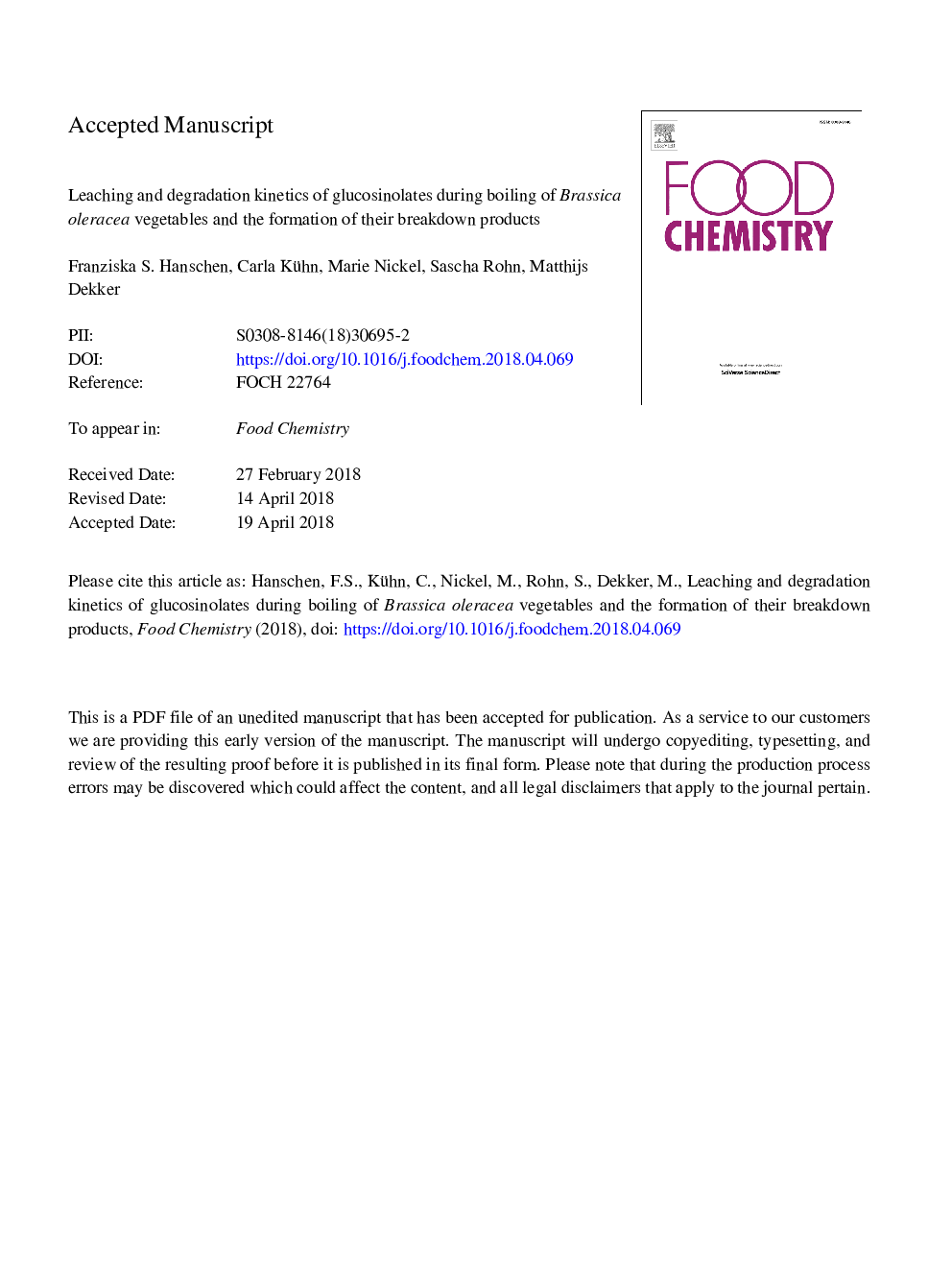| Article ID | Journal | Published Year | Pages | File Type |
|---|---|---|---|---|
| 7584760 | Food Chemistry | 2018 | 39 Pages |
Abstract
Domestic processing methods, such as boiling, significantly affect the glucosinolate content and the formation of breakdown products in Brassica vegetables. Here, we comprehensively describe the effect of aqueous heat treatment on the degradation and leaching kinetics of glucosinolates on the formation of their enzymatic and non-enzymatic hydrolysis and breakdown products. The results were correlated with the inactivation kinetics of myrosinase and epithiospecifier protein activity in the Brassica oleracea vegetables kohlrabi, white cabbage, and red cabbage. Short-term heating increased isothiocyanate formation due to inactivation of the epithiospecifier protein. Myrosinase was inactivated shortly after that. Boiling led to leaching of glucosinolates and their hydrolysis products into the boiling water. Heating to 99â¯Â°C resulted in thermally-induced glucosinolate breakdown and nitrile formation, both in vegetables and boiling water. Finally, kinetic modeling not only revealed differences in myrosinase inactivation among the vegetables, but also glucosinolate leaching and degradation kinetics differed between individual glucosinolates and vegetables.
Related Topics
Physical Sciences and Engineering
Chemistry
Analytical Chemistry
Authors
Franziska S. Hanschen, Carla Kühn, Marie Nickel, Sascha Rohn, Matthijs Dekker,
